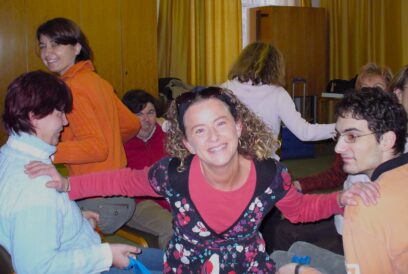

However closely it might affect our lives, many EU citizens struggle to keep track of EU issues. For adult educators, however, it’s increasingly becoming a necessity. The text is an editorial written for issue 2/2018 on Adult Education and the EU.
In many ways, I’m a stereotypical millennial. I’ve grown up in an internationally networked world, used euros all my adult life, travelled a lot and lived abroad several times.
I’m one of those people too, who considers themselves more European than just Finnish; nationalism has never been very hip for my generation. I’m also working for an international magazine, focused on lifelong learning.
It would be natural to expect then that I would know all sorts of things about the EU, from major policies to minor details and anecdotes. Or if not, I would be following it actively and using my time filling the gaps. That’s what I do right, lifelong learning?
Now, I have a confession to make. I’ve always found the EU decision-making structures and policies enormously complicated, and even worse than that, boring.
When I started planning this issue, I subscribed to all sorts of EU-related newsletters and started going to EU-themed press conferences. It is absolutely embarrassing how little I knew about anything, and still do.
TURNS OUT THAT I wasn’t the only one. A quick look at the most recent Eurobarometer survey, conducted in March 2018 shows, that there are some major shortcoming in EU knowledge among Europeans.
Just to give an example, one in four respondents didn’t know how many member states there are in the Euro area, and almost 40 percent of the respondents gave a wrong answer to a simple true or false statement about them.
Many more equally illuminating examples could be found there, such as that several key EU institutions were practically foreign to a vast majority of respondents.
What could be achieved if we lobbied together for better policies and funding instruments at EU level?
In addition, unfortunately, as my personal example illustrates, people working in adult education seem to be no different.
JUST LIKE EVERYONE ELSE, we are in a hurry. Too often, we manage to only see our immediate surroundings and daily tasks. We spend our time competing for shrinking national resources.
Time to think about improving the funding instruments themselves at national or EU level, or time to just sit down and plan the future does not seem to be found.
But what if we saw ourselves as part of a big European adult education front aiming to enable lifelong learning for all citizens? What could be achieved if we lobbied together for better policies and funding instruments at EU level?
This issue aims to offer a few insights into the many ways that the EU affects the field of adult education. We will look at EU funding policies and go through some EU-related vocabulary. We will compare experiences of surviving in a maze of international projects from countries such as the UK, Germany and Romania, and take a look at Ireland, where numbers of adult learners remain lower than in other EU countries.
Whether we want it or not, many decisions affecting our work and personal lives are made at EU level.
There is also an anniversary article about EPALE, the cooperation portal that aims to give a voice to a field that tends to be neglected in terms of funding and attention compared to other fields in education.
Last but not least, we will look at a success story from Austria, where an association has managed to establish a system where information about the EU reaches all adult educators during their compulsory training.
THE ISSUE IS OF COURSE just one opening to the vast theme, and more information is being constantly produced by EAEA, EPALE and the EU institutions themselves.
Sources and methods can be anything, but one thing is certain: we ought to do better. Whether we want it or not, many decisions affecting our work and personal lives are made at EU level.
It’s also our job to make sure that learning never ends, even if it gets complicated or boring.
Author






